
It’s hard to believe, but the first quarter of 2011 is now a memory and we’re well into spring. The tone for the year in high technology was set in early January: fast, bold, aggressive action and sweeping management changes.
In the first four months of the year, high-tech vendors moved quickly and decisively to seize opportunities in established sectors (smartphones, virtualization, data backup and disaster recovery) and emerging markets (cloud computing, tablet devices and unified storage management).
As 2011 unfolds, it’s apparent that high-technology vendors are willing to shift strategies and shed executives in order to stay one step ahead of — or keep pace with — competitors. The competition is cutthroat and unrelenting. No vendor, no matter how dominant its market share, how pristine its balance sheet, or how deep its order backlog and book-to-bill ratio dares relax or rest on its laurels for even a nanosecond.
Recaps of some of the year’s highlights thus far are very revealing.
Apple’s Leadership Angst
January lived up to its reputation for sweeping out the old and ushering in the new. The first four weeks of the year were hell on top executives. AMD, Apple, Google, HP and Microsoft all had shakeups in their management ranks, albeit for very different reasons.
Apple delivered the first jolt early in the month. In a well-orchestrated announcement (on the Martin Luther King holiday, a slow news day, and just in advance of its second quarter earnings release) the company said founder and chief executive Steve Jobs, the architect of Apple’s renaissance, would take a leave of absence for an undisclosed period of time to focus on his health. Tim Cook, Apple’s chief operating officer would serve as the interim CEO. He is most likely to inherit the top spot if Jobs doesn’t return.
News of Jobs’ departure was not entirely unexpected. He’s battled serious health problems for the past several years, which necessitated a prior medical leave. Industry watchers greeted the news with gloom and dire prognostications.
The fears were assuaged somewhat when Jobs made two high-profile appearances. He was among a select group of Silicon Valley luminaries who dined with President Barack Obama in mid-February. More importantly, though, Jobs was on hand to launch the iPad 2 at Apple’s March 2nd press conference. This was an encouraging sign for Wall Street and industry watchers who constantly wonder whether Apple can continue to maintain its incredible momentum and success absent Jobs’ leadership, creative genius and vision with “just” an ops guy (Tim Cook), no matter how smart and accomplished? The answer for the first fourth months of 2011 is a resounding “Yes.”
The fears concerning Jobs are not wholly unreasonable. However, based on Apple’s continuing strong performance across all market sectors in which it participates, it would take a freight train to blunt the Cupertino firm’s momentum. Apple’s iOS mobile operating system, which powers the iPhone, is one of the top three smartphone platforms, along with Google’s Android and Research In Motion’s BlackBerry.
On the tablet front, Apple is the preeminent vendor, with a dominant 65-percent-plus market share. This won’t change anytime soon. Despite some early problems with light leakage on its displays, demand for the iPad 2 is robust — outpacing even its predecessor, the original iPad. The first shipment of iPad 2s sold out within the first 24 hours of its availability on March 11 at all of the 220 Apple stores in the U.S. More than a month later, the current order backlog for online sales stands at one to two weeks.
At press time, Apple’s stock was hovering at about $347 — which is at the high end of its 52-week range of US$199.25 to 364.90. Apple’s sales for its last fiscal year, ended Sept. 30, 2010, were $65.2 billion — a little more than half of the $126 billion in annual revenues that HP recorded in its most recent fiscal year, and approximately two-thirds of IBM’s revenues of $99.9 billion in FY 2010. A recent survey of financial and industry analysts conducted by Thomson Reuters forecasts that Apple’s fiscal 2011 revenues could rise by more than 30 percent to $99.94 billion and reach $117.77 billion in fiscal 2012, for a very impressive two-year compound annual growth rate of 34.4 percent.
Location, Location, Location
Apple’s sales are on fire because its products are cool.
This is a big reason why Apple’s reputation hasn’t suffered much from the so-called “Locationgate” flap that cropped up in the last two weeks. The core issue is that unbeknownst to users, Apple’s iOS was recording and storing all the details of all the places they visited via their iPhones and iPads. Apple was mum for a couple of weeks and then finally, on April 27, the company issued a statement clarifying the situation.
Apple said that the devices were not tracking the users’ movements but rather “maintaining a database of WiFi hotspots and cell towers around your current location that is then used by your iPhone to rapidly and accurately calculate its location when requested.” The data is then downloaded by the user’s iPhone or iPad. The iPhone continues to maintain the cache of data even after the iOS Location Services are switched off, which the company characterized as a bug. Apple said it would rectify the matter by deleting the cache when Location Services are switched off.
To drive home the point even further, Steve Jobs did telephone interviews with several reporters. The better-late-than-never explanation has satisfied most users, although some in the blogsphere and forums say that Apple is doing little more than engaging in spin control because it got caught.
Should Apple have said something sooner? In a perfect world, yes. Apple’s products are not perfect. They do experience problems. However, ITIC’s latest 2010 Apple Consumer and Enterprise Survey, which polled nearly 800 users last November/December found that Apple has an excellent track record with respect to addressing and fixing technical issues and performance problems. Eight out of 10, or 82 percent, of respondents said they “never,” “rarely” or “occasionally” encounter difficulties with Apple products/devices. Only a 7 percent minority indicated they experience weekly or daily issues. Whether you believe Apple’s statement is a ploy or a sincere public mea culpa, Apple is fixing the problem — and that’s what counts.


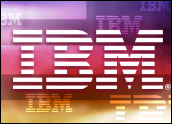
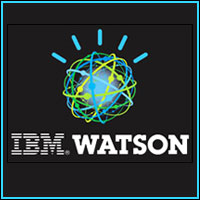

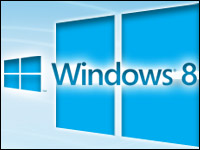

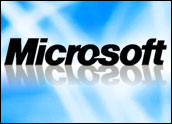

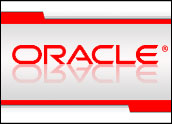
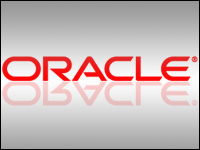











































2010 saw the iPad laying of the foundation stone for change in popular computing. It was a make-or-break year for change. Had the iPad failed to impress, there might have no prospect for raising the issue of Post-PC ism for years.
The iPad succeeded though and it has won hearts around the world and across all kinds of cultural barriers. Like visual humour, the iPad leaps over cultural boundaries of language and interpretation of meaning. I have seen the very old and the very young cleave to this device with a passion – they just don’t want to give it back after a 30 minute play/tryout. So I AM satisfied that, whether the iPad dominates the new tablet market or not, the world of computing has changed.
imo, 2011 is the year when this change in attitude and expectations begins to gain full traction. When iOS 5 and Mac OSX Lion are released, we will see the fruits of the cross-fertilisation of ideas. We will see the results of feedback and feedforward working in tandem. We will see a readiness in companies (starting with Apple as change agent) simply to implement ideas in either platform because they work and make computing life easier, better or just more fun.
The iPad and its imitators may become, more or less, a truer form of the ‘computer for the rest of us’. It is certainly an affordable way forward and it is evolving so very fast.
Gosh! It took you what, a year, to decide to write to Jobs?
And what exactly are your credentials for saying what you say?
Are you a part of the world’s best-loved brand?
Have you created the largest tech company in the world?
Were you weeping into your hot milk as you wrote this blast of crybaby nonsense?
Pray, do tell.
I think it is also important to raise awareness regarding Apple’s scams and abuses related to mobile application and digital entertainment markets, their strategy to destroy the web by pushing HTML5 (which they do not truly support and implement themselves) in order to kick users out of the web into Apple’s walled garden taxed at 30% is outrageous! Apple’s ban of Flash is not acceptable, turning consumers and developers into collateral damages in a corporate war is not acceptable.
I invite you to read my email sent to Steve Jobs this week in response to his "Thought on Flash" posted on Apple’s website last year:
http://tinyurl.com/65w3bop